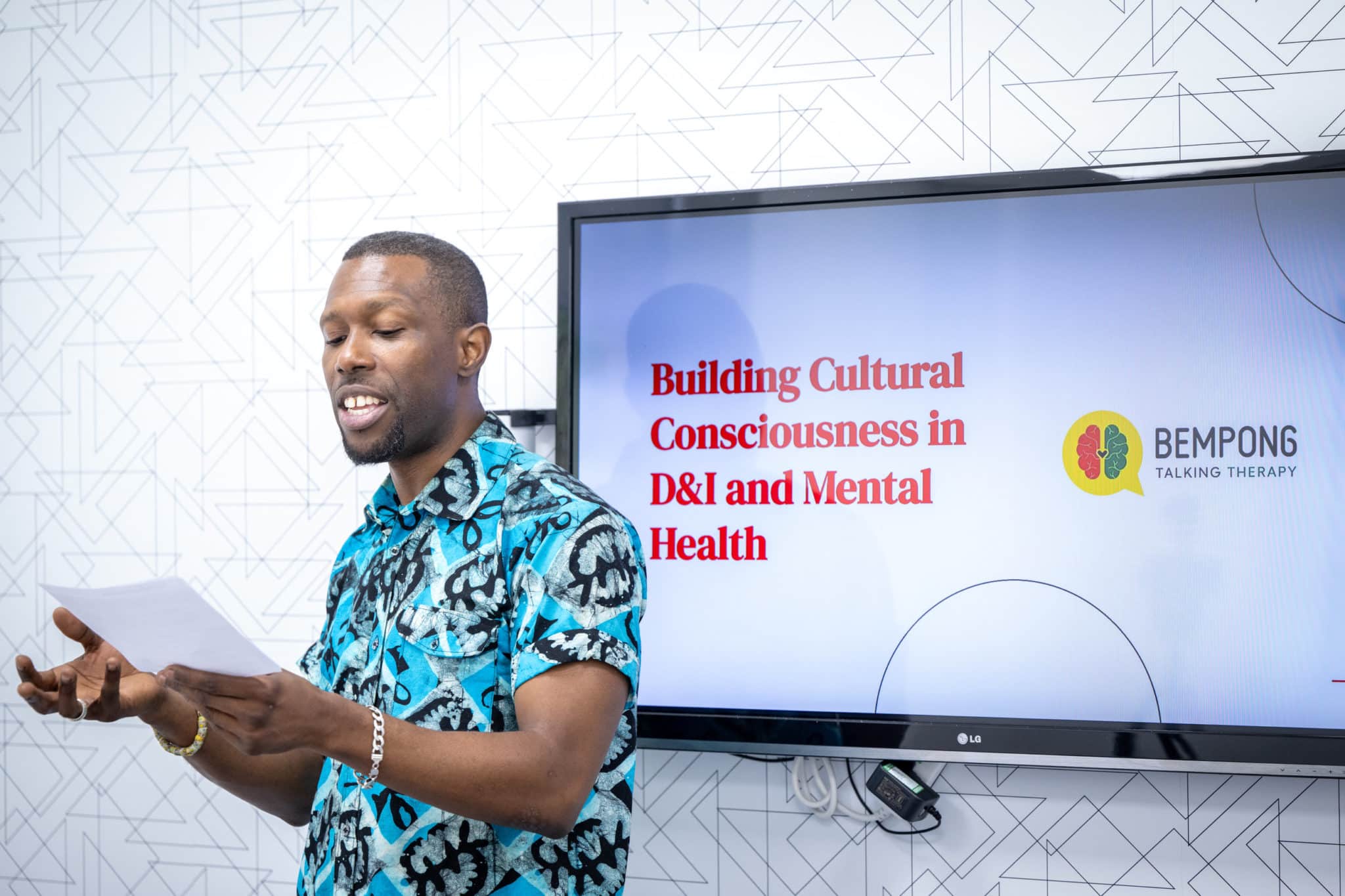Jarell Bempong is a therapist, bestselling author, and founder of Bempong Talking Therapy, an organisation dedicated to integrating diversity, equity, and inclusion principles into corporate mental health. To recognise Black History Month in the US and Race Equality Week in the UK, Jarell talked to our team about his work, which is centred on cultural consciousness and its importance in mental health care and the workplace.
Can you tell us about your background?
My journey into mental health care and advocacy is deeply intertwined with my intersectional identity, rooted in my English-Ghanaian heritage. This unique perspective has made me acutely aware of the complexities of identity, culture, and belonging. It has inspired me to bridge the gaps in traditional mental health care by adopting a holistic approach that embraces cultural consciousness, DEI, and AI technology through an intersectional lens. This approach ensures that mental wellbeing services are not only accessible but also resonate deeply with the diverse experiences and needs of various communities, acknowledging the interconnectedness of different aspects of our identities.
What does cultural consciousness mean to you?
When I speak of cultural consciousness, I refer to a deeper, more intentional engagement with the diversity surrounding us. In this context, seeking knowledge means going beyond superficial understanding to grasp the complexities and subtleties of different cultures. It involves educating ourselves about historical contexts, social norms, values, and traditions that shape individual and collective identities.
This quest for knowledge is intertwined with empathy, which, while universal, takes on a nuanced dimension within cultural consciousness. Empathy here is not just about connecting on a human level but also about understanding and respecting the cultural factors that influence a person’s emotions, thoughts, and behaviours. It’s about seeing the world through their artistic lens, not just our own.
Cultural consciousness elevates empathy by grounding it in a genuine understanding of cultural diversity. It compels us to adapt our interactions in culturally informed and sensitive ways, ensuring that our empathy is not only felt but also culturally resonant. This is where cultural consciousness distinguishes itself: its empathy is informed by a deep respect and understanding of cultural diversity, leading to more meaningful, inclusive, and respectful interactions.
Why is cultural consciousness so crucial in mental health care?
Cultural consciousness is paramount in mental health care as it ensures that therapeutic practices are respectful, relevant, and deeply attuned to each individual’s cultural background and lived experiences. By challenging the generic one-size-fits-all approach, cultural consciousness breaks down barriers to care, making mental health services more accessible and practical. Embracing cultural nuances allows for a more empathetic, nuanced approach to care, offering support that genuinely reflects and is responsive to the diverse tapestry of human experiences. This commitment to understanding and integrating the intricacies of culture within mental health practices is essential for providing genuinely compassionate and practical support, ensuring that every individual feels seen, heard, and understood in their journey towards well-being.
What can companies do to be more culturally conscious?
Companies can foster cultural consciousness by embedding it into their core values and practices. This involves continuous learning, open dialogue about diversity and inclusion, and policies reflecting equity commitment. Training programmes on cultural competence for staff, inclusive hiring practices, and creating safe spaces for sharing diverse perspectives are practical steps companies can take. Ultimately, it’s about building an environment where every employee feels seen, heard, and valued.

